Relevance of Durkheim's Social Fact for Contemporary Anthropology
VerifiedAdded on 2022/09/23
|6
|1613
|27
Essay
AI Summary
This essay delves into Emile Durkheim's concept of "social facts" and its continuing relevance in contemporary anthropology. It begins by defining social facts as external cultural norms, values, and social structures that exert control over individuals, as outlined by Durkheim. The essay then explores how Durkheim's ideas, such as the classification of social facts into material and controlling aspects, provide a framework for understanding societal phenomena. The paper highlights the importance of Durkheim's work in differentiating the social from biological and psychological aspects of individuals, and how his focus on the functions and causes of social order remains vital. The essay also discusses the complexities of applying Durkheim's concepts in contemporary anthropology, considering the roles of ethnography, post-truth environments, and the influence of power dynamics. It acknowledges the limitations of solely relying on social facts, especially in the context of alternative facts and societal contestations, and argues for the need to consider a more nuanced approach that accounts for individual agency and political influences. The analysis includes Durkheim's positivist approach to studying social issues scientifically and his views on social regulation and integration, while also addressing the manipulation of data and the existence of multiple realities beyond the constraints of social facts. The essay concludes by emphasizing the importance of challenging objectivity to investigate social realities and the need to study political discourses and power relations in the contemporary age.
1 out of 6
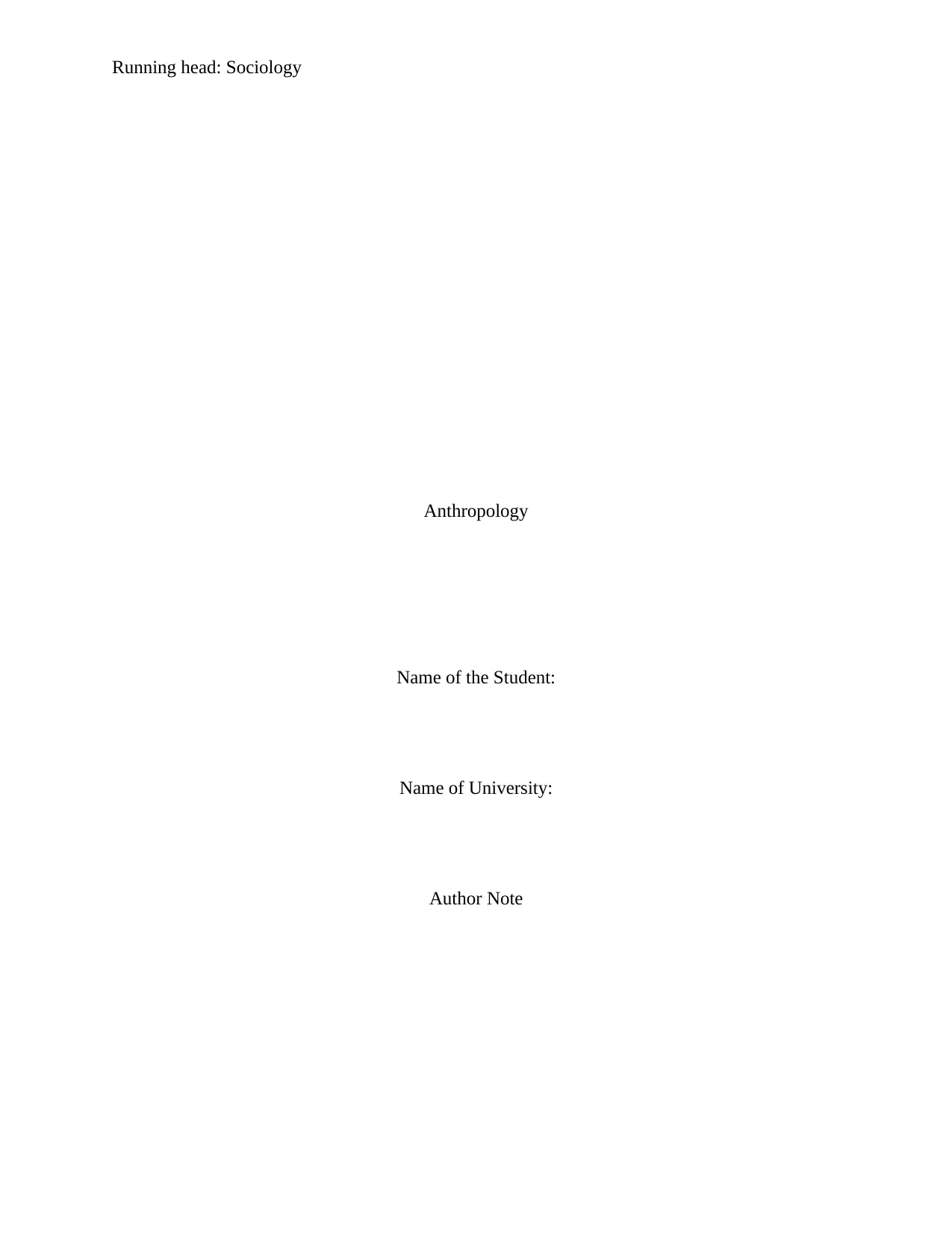
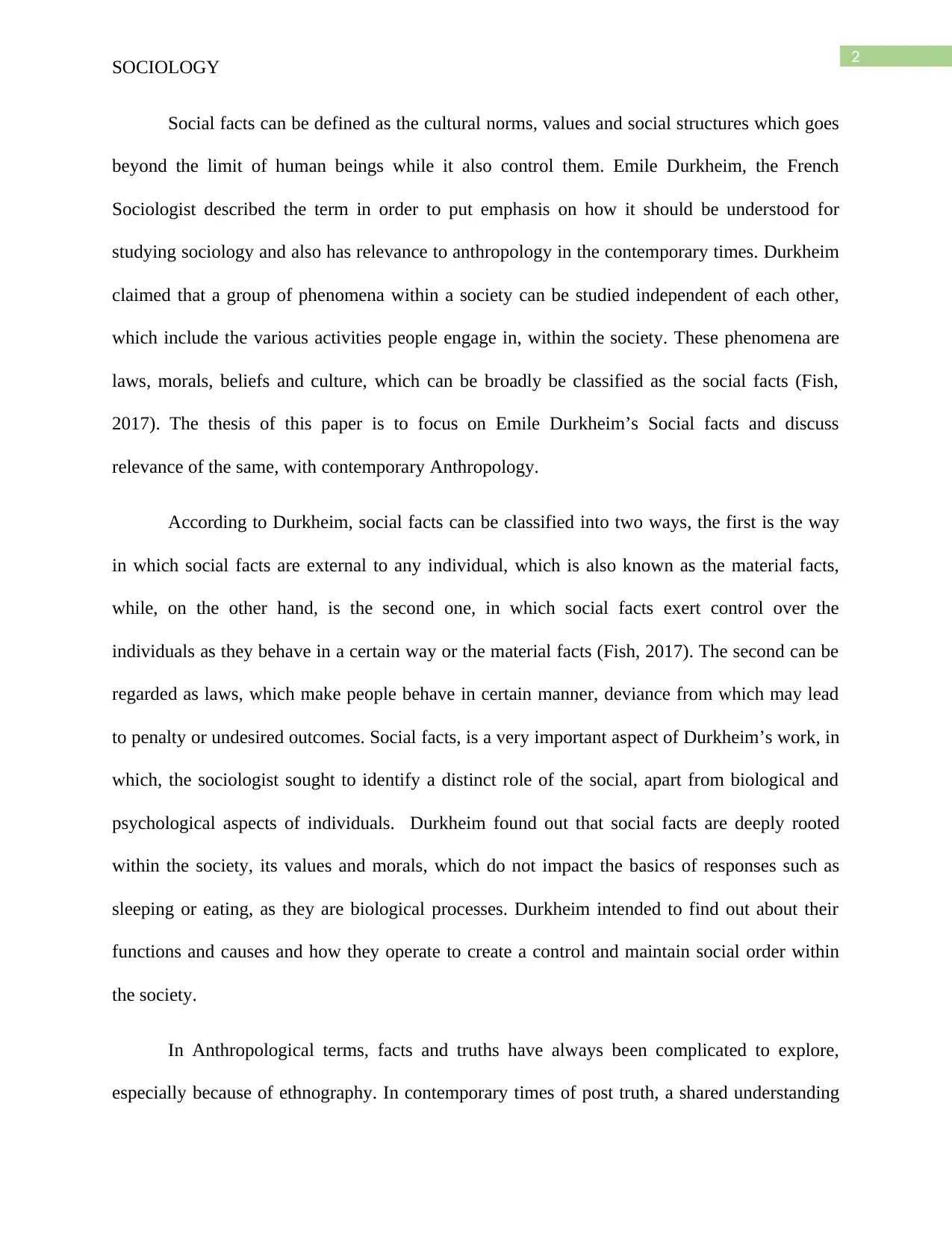
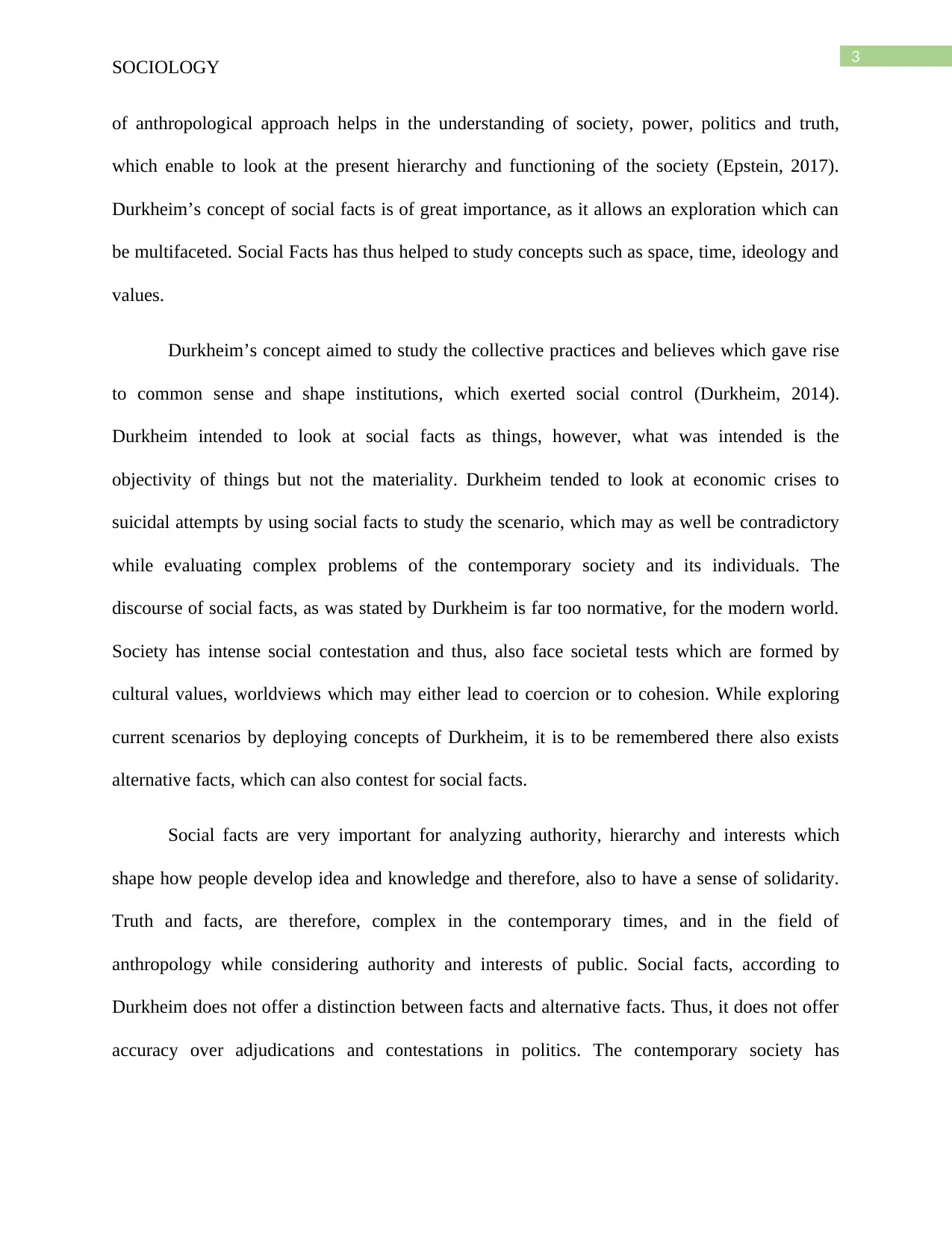

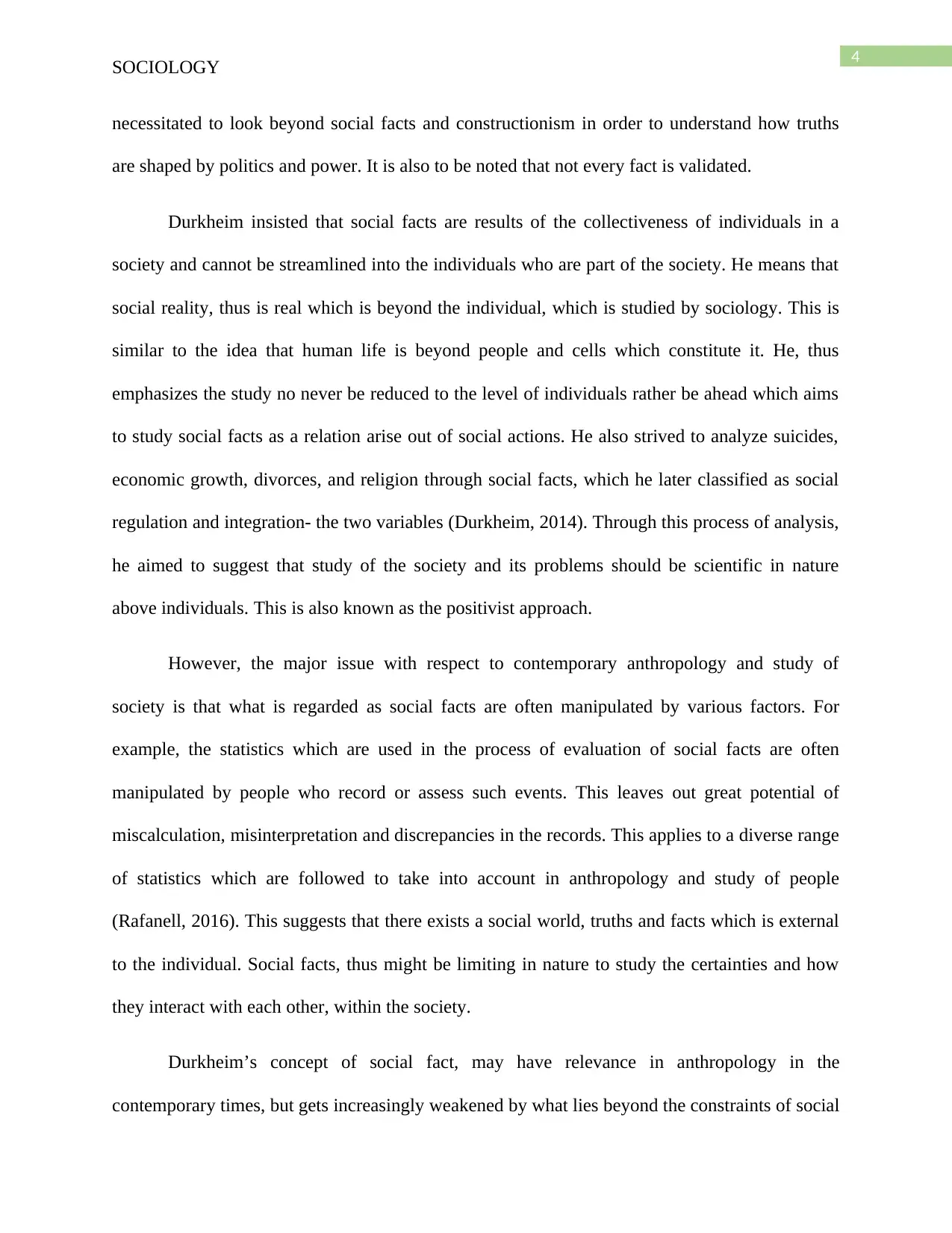
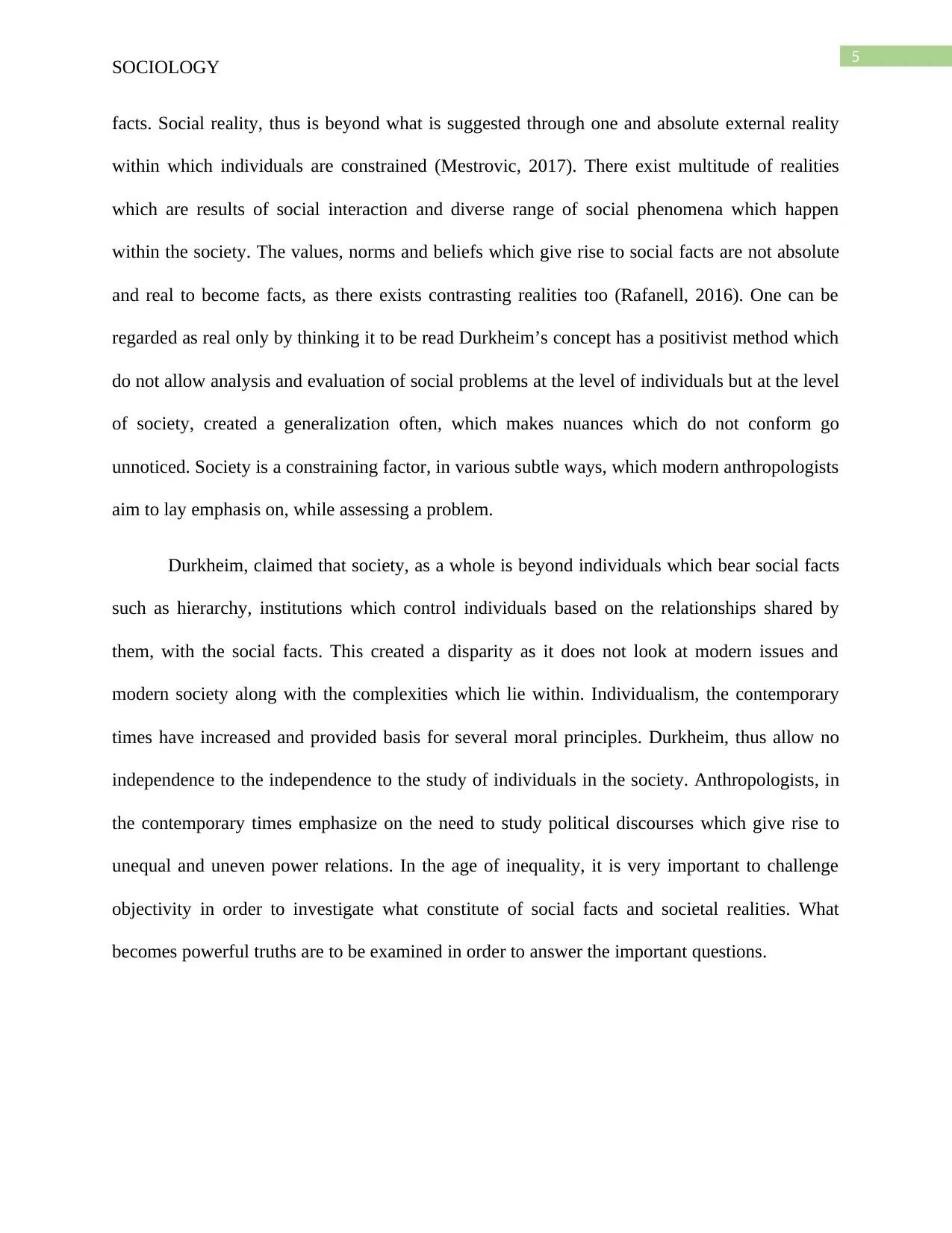
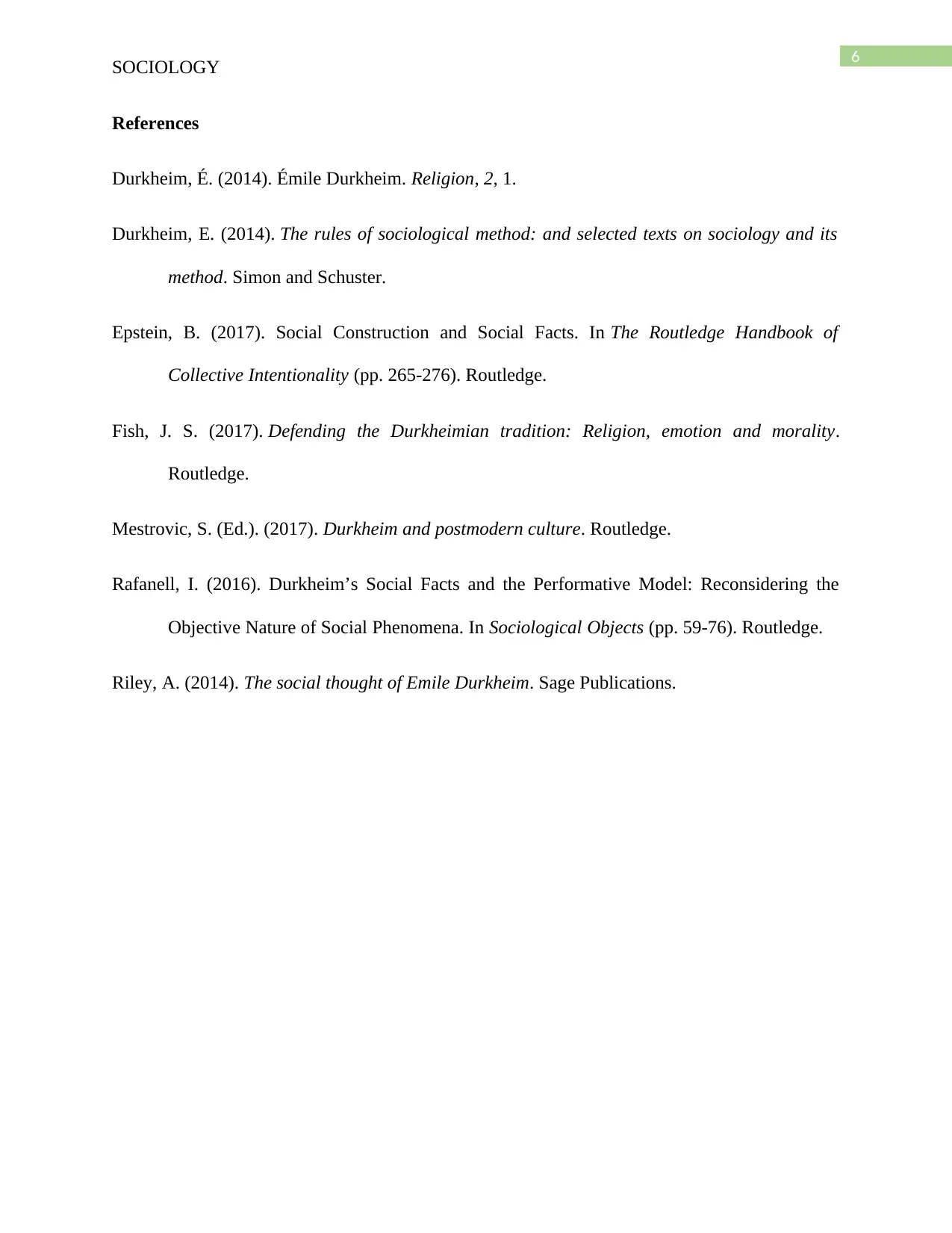

![[object Object]](/_next/static/media/star-bottom.7253800d.svg)